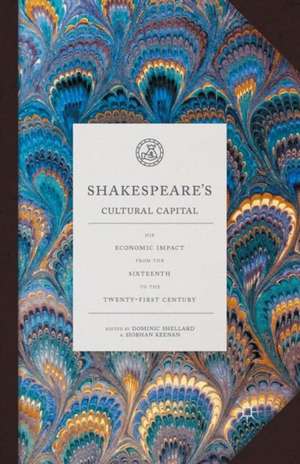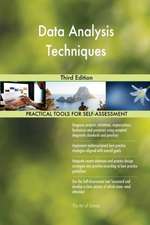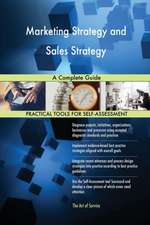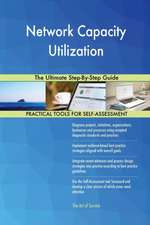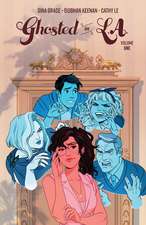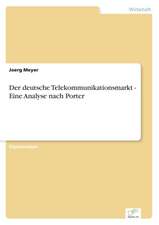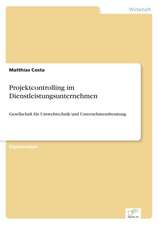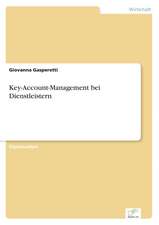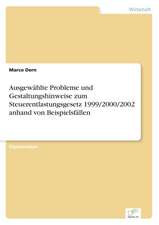Shakespeare's Cultural Capital: His Economic Impact from the Sixteenth to the Twenty-first Century
Editat de Dominic Shellard, Siobhan Keenanen Limba Engleză Paperback – 4 apr 2016
With a foreword from the celebrated cultural economist Bruno Frey and nine essays exploring the cultural and economic impact of Shakespeare in his own day and the present, Shakespeare’s Cultural Capital forms a unique offering to the study of cultural economics and Shakespeare.
| Toate formatele și edițiile | Preț | Express |
|---|---|---|
| Paperback (1) | 209.35 lei 6-8 săpt. | |
| Palgrave Macmillan UK – 4 apr 2016 | 209.35 lei 6-8 săpt. | |
| Hardback (1) | 268.66 lei 6-8 săpt. | |
| Palgrave Macmillan UK – 24 mar 2016 | 268.66 lei 6-8 săpt. |
Preț: 209.35 lei
Nou
Puncte Express: 314
Preț estimativ în valută:
40.07€ • 41.51$ • 33.44£
40.07€ • 41.51$ • 33.44£
Carte tipărită la comandă
Livrare economică 21 martie-04 aprilie
Preluare comenzi: 021 569.72.76
Specificații
ISBN-13: 9781137583154
ISBN-10: 1137583150
Pagini: 187
Ilustrații: XIII, 187 p.
Dimensiuni: 140 x 216 x 11 mm
Greutate: 0.24 kg
Ediția:1st ed. 2016
Editura: Palgrave Macmillan UK
Colecția Palgrave Macmillan
Locul publicării:London, United Kingdom
ISBN-10: 1137583150
Pagini: 187
Ilustrații: XIII, 187 p.
Dimensiuni: 140 x 216 x 11 mm
Greutate: 0.24 kg
Ediția:1st ed. 2016
Editura: Palgrave Macmillan UK
Colecția Palgrave Macmillan
Locul publicării:London, United Kingdom
Cuprins
Foreword by Bruno Frey, Zeppelin University, Germany.- Chapter 1: Introduction; Dominic Shellard, Siobhan Keenan, de Montfort University, UK.- Chapter 2: Shakespeare and the Market in his Own Day; Siobhan Keenan.- Chapter 3: Shakespeare and the Impact of Editing; Gabriel Egan, de Montfort University, UK.- Chapter 4: Marketing Shakespeare on Film: From Tragedy to Biopic, Deborah Cartmell, de Montfort University, UK.- Chapter 5. Shakespearean Actors, Memes, Social Media and the Circulation of Shakespearean ‘Value’; Anna Blackwell, de Montfort University, UK.- Chapter 6: Ales, Beers, Shakespeares; Graham Holderness and Bryan Loughrey, University of Hertfordshire, UK.- Chapter 7. A King Rediscovered: the Economic Impact of Richard III and Richard III on the City of Leicester; Dominic Shellard-. Chapter 8: Shakespeare is ‘GREAT’ Conrad Bird, GREAT Britain Campaign, Foreign and Commonwealth Office, UK; Jason Eliadis and Harvey Scriven, Arcadian Consultancy, UK.- Chapter 9: Sponsored by Shakespeare; Susan Bennett, University of Calgary, Canada.
Notă biografică
Professor Dominic Shellard is the vice-chancellor of De Montfort University, Leicester, UK and an expert on post-war British Theatre. He is the author of nine books and the leader of the British Library Theatre Archive Project. He authored the Arts Council England project Economic Impact Study of UK Theatre and An Economic Impact Study of Welsh National Opera within Wales.
Dr Siobhan Keenan is a reader in Shakespeare and Renaissance Literature at De Montfort University, Leicester, UK. She has published widely on early modern theatre history and is the author of several books, including Travelling Players in Shakespeare’s England (Palgrave Macmillan, 2002) and Acting Companies and Their Plays in Shakespeare’s London.
Dr Siobhan Keenan is a reader in Shakespeare and Renaissance Literature at De Montfort University, Leicester, UK. She has published widely on early modern theatre history and is the author of several books, including Travelling Players in Shakespeare’s England (Palgrave Macmillan, 2002) and Acting Companies and Their Plays in Shakespeare’s London.
Textul de pe ultima copertă
Shakespeare is a cultural phenomenon and arguably the most renowned playwright in history. In this edited collection, Shellard and Keenan bring together a collection of essays from international scholars that examine the direct and indirect economic and cultural impact of Shakespeare in the marketplace in the UK and beyond. From the marketing of Shakespeare’s plays on and off stage, to the wider impact of Shakespeare in fields such as education, and the commercial use of Shakespeare as a brand in the advertising and tourist industries, this volume makes an important contribution to our understanding of the Shakespeare industry 400 years after his death.
With a foreword from the celebrated cultural economist Bruno Frey and nine essays exploring the cultural and economic impact of Shakespeare in his own day and the present, Shakespeare’s Cultural Capital forms a unique offering to the study of cultural economics and Shakespeare.
With a foreword from the celebrated cultural economist Bruno Frey and nine essays exploring the cultural and economic impact of Shakespeare in his own day and the present, Shakespeare’s Cultural Capital forms a unique offering to the study of cultural economics and Shakespeare.
Caracteristici
2016 marks 400 years since Shakespeare's death and this collection of essays examines the impact the Shakespeare industry still has on today's economy Examines the cultural and economic impact of Shakespeare in the marketplace, in both his own day and the present Cultural economist Bruno Frey comments on how Shakespeare is exploited today and welcomes a new area of research in cultural economics
